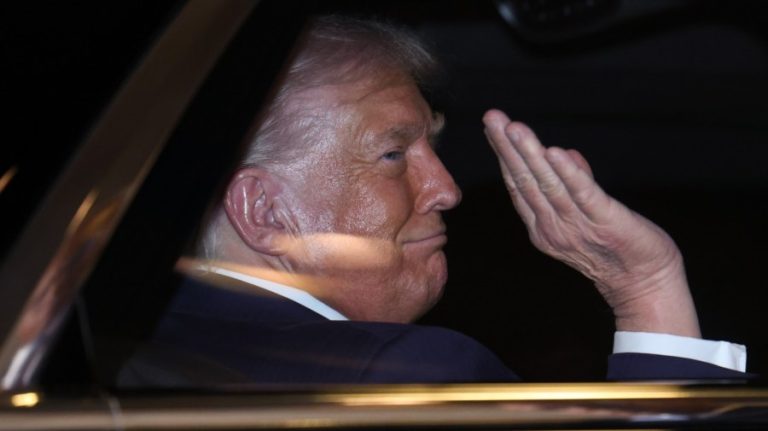President Trump told reporters on Monday that he went underwent an MRI and a cognitive test during his “secondary” physical at Walter Reed earlier this year.
The president did not detail the reason for the MRI, saying that the full results were made public and added that the exam was “perfect.”
“I got an MRI, it was perfect,” Trump told reporters on Air Force One while en route to Japan on Monday.
“Nobody has ever given you reports like I gave you, and if I didn’t think it was going to be good, either I would let you know negatively,” Trump added. “I wouldn’t run, I’d do something. But the doctors said some of the best reports for the age, some of the best reports they’ve ever seen.”
Trump also revealed that he underwent a cognitive test after suggesting the likes of Reps. Jasmine Crocket (D-Texas) and Alexandria Ocasio-Cortez (D-N.Y.) undergo similar exams after suggesting both have low-IQ’s.
“You give her an IQ test. Have her pass, like, the exams that I decided to take when I was at Walter Reed,” Trump said referring to Ocasio-Cortez. “I took — those are very hard — they’re really aptitude tests, I guess, in a certain way.”
“The first couple of questions are easy. A tiger, an elephant, a giraffe, you know. When you get up to about five or six, and then when you get up to 10 and 20 and 25, they couldn’t come close to answering any of those questions,” Trump added.
The president’s comments come after he underwent a medical evaluation for a “semiannual physical” at Walter Reed National Military Medical Center earlier this month. Trump’s physician Sean Barbabella said Trump “continue[s] to demonstrate excellent overall health.” Barbabella also said the president underwent “advanced imaging, laboratory testing and preventative health assessments” during the visit.
In July, Barabella said the president was diagnosed with chronic venous insufficiency, “a benign and common condition, particularly in individuals over the age of 70” following an appointment.
“Additionally, recent photos of the president have shown minor bruising on the back of his hand, Barbabella wrote. ”This is consistent with minor soft tissue irritation from frequent handshaking and the use of aspirin, which is taken as part of a standard cardiovascular prevention regimen. This is a well-known and benign side effect of aspirin therapy.”

